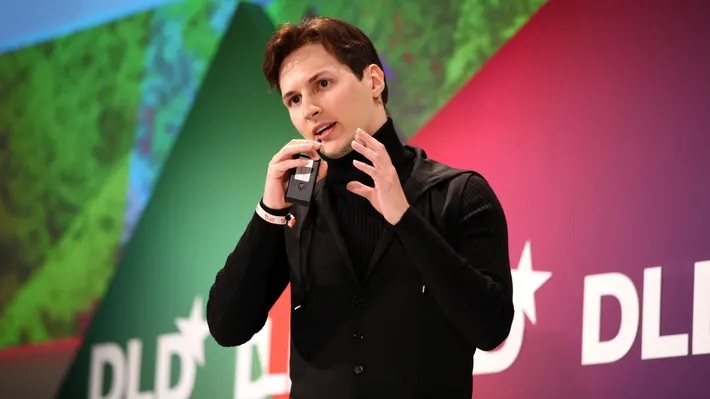The One-Year Mark Since Pavel Durov’s Arrest
It has been a year since the arrest of Telegram CEO and co-founder Pavel Durov, which ignited outrage among free speech advocates and raised concerns about the future of platform moderation.
Details of the Arrest
On August 24, 2024, Durov was apprehended at Paris-Le Bourget Airport in Paris, France, as part of an investigation by the French National Judicial Police. The subsequent charges against him include 12 counts that allege he is complicit in serious crimes committed by users on his platform.
Durov’s Response and Reaction from Advocates
Durov has voiced his confusion and frustration regarding the case in various interviews. Free speech proponents have sharply condemned the arrest, arguing that it carries serious ramifications for both free expression and the evolution of digital platforms.
Current Status of the Case
Now, a year later, there seems to be little advancement in the case, while new threats to user privacy on messaging platforms emerge.
Durov’s arrest occurred after a warrant was issued by France’s L’Office Mineurs (OFMIN), the agency responsible for addressing crimes against minors, as part of a preliminary inquiry into Telegram.
Investigators have asserted that Telegram’s lack of content moderation makes Durov complicit in alleged offenses, including fraud, drug trafficking, cyberbullying, and organized crime.
Telegram’s Compliance Statement
In response, Telegram has stated that it complies with EU laws, such as the Digital Services Act, and maintains moderation practices that align with industry standards.
The TON Society, which drives the development of The Open Network based on Telegram’s earlier blockchain project, characterized the arrest as “a direct assault on a basic human right.” Notably, Edward Snowden, a well-known whistleblower, accused French President Emmanuel Macron of “taking hostages for gaining access to private communications.”
Durov’s Coming Forward
Durov did not speak publicly until September 2024 when he mentioned in a Telegram statement that the company was “prepared to leave markets that aren’t compatible with our principles.” He indicated surprise at his arrest, noting that Telegram reportedly has multiple mechanisms for cooperating with authorities.
He also shared that the arrest has had personal repercussions, revealing that his partner, Juli Vavilova, suffered a miscarriage due to the stress related to the investigation.
Court Appearance and Travel Restrictions
Durov’s first court appearance was not until December, and a few months later, he secured limited permission to travel to the United Arab Emirates for business while the legal proceedings in France continue.
In a June interview with Tucker Carlson, Durov clarified that he is not currently on trial, but rather required to appear before “investigative judges” tasked with determining if there is sufficient evidence for a trial.
He described the requirement to remain in France as “very strange and very unnecessary,” given that he is only obliged to appear in court every few months. He expresses hope that the situation could be resolved soon or at least that he could have the travel restrictions lifted.
Ongoing Investigations
As of August 24, the investigation persists.
Regulatory Pressures on Messaging Services
Durov’s situation unfolds against a backdrop of increasing scrutiny from regulators worldwide towards encrypted messaging services.
Denmark, which currently presides over the European Council, has proposed legislation mandating encrypted messaging platforms, including WhatsApp, Signal, and Telegram, to scan all messages, photos, and videos shared by users.
This bill, known as the “Regulation to Prevent and Combat Child Sexual Abuse,” or “Chat Control” as referred to by critics, reportedly has the backing of 19 out of 27 member states. For the legislation to pass, it requires support from at least 15 countries, which must collectively represent at least 65% of the EU’s population.
The European Crypto Initiative has urged citizens to contact their European Parliament representatives and has announced plans to engage directly with regulators during a stakeholder session in September.
Durov’s Stance on Compliance
Durov has stated that he would prefer that Telegram withdraw from certain markets rather than adhere to regulations that compromise the company’s ethical stance regarding privacy.
“Telegram would rather exit a market than undermine encryption with backdoors and violate basic human rights. Unlike some of our competitors, we don’t trade privacy for market share,” he remarked.
Crackdown in Russia
In Durov’s native Russia, government actions have intensified against encrypted messaging apps, leading to the prohibition of WhatsApp and Telegram, which authorities claim are used for fraud and terrorism. Facebook, Instagram, and X have also been banned.
In their place, the government has introduced the messaging app Max, alongside VK, a social media platform originally developed by Durov. Durov departed from VK in 2014 after he refused to surrender user data regarding Ukrainian protestors opposing pro-Russian president Viktor Yanukovych.
Max, which reportedly includes government services and peer-to-peer payments within the app, has been accused of collecting user data such as contact lists, metadata, IP addresses, and timestamps, making it available to authorities. Starting September 1, phones sold in Russia will come with the app pre-installed.
Implications for Privacy
Globally, encrypted messaging services are facing mounting pressure to compromise user privacy. Whether due to authoritarian regimes or legitimate concerns for child safety, once privacy is compromised, it is not easily restored. Durov’s case, while advancing at a slow pace, will likely have significant implications for the regulation and development of messaging applications.



















